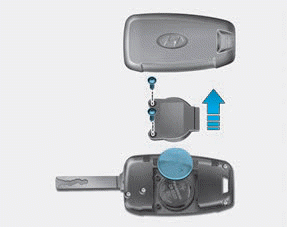Hyundai Palisade: Tires/Wheels / Wheel
Repair procedures
| Hub nut tightening sequence |
| 1. |
Tighten the hub nuts as follows.
|
Run out inspection
| 1. |
Jack up the vehicle.
|
| 2. |
Measure the wheel Run-out by using a dial indicator as illustration
below.
|
| 3. |
If measured value exceeds the standard value, replace the wheel.
|
 Tire
Tire
Repair procedures
Tire Wear
•
Using tires and wheel other than the recommended sizes could
cause unusual handling characteristics and poor vehicle control,
resulting in a serious accident...
 Alignment
Alignment
Repair procedures
Front Wheel Alignment
•
When using a commercially available computerized wheel alignment
equipment to inspect the front wheel alignment, always position
the vehicle on a level surface with the front wheels facing
straight ahead...
Other information:
Hyundai Palisade (LX2) 2020-2025 Service Manual: Crash Pad Center Panel
Components and components location Component Location 1. Crash pad center panel Repair procedures Replacement • When removing with a flat-tip screwdriver or remover, wrap protective tape around the tools to prevent damage to components...
Hyundai Palisade (LX2) 2020-2025 Owner's Manual: Instrument cluster
■ Type A ■ Type B 1. Tachometer 2. Speedometer 3. Engine coolant temperature gauge 4. Fuel gauge 5.Warning and indicator lights 6. LCD display (including Trip computer) ■ Type C 1. Tachometer 2. Speedometer 3. Engine coolant temperature gauge 4...
Categories
- Manuals Home
- 1st Generation Palisade Owners Manual
- 1st Generation Palisade Service Manual
- Theft-alarm system
- AC Inverter
- Emergency liftgate safety release
- New on site
- Most important about car
Battery replacement

If the remote key is not working properly, try replacing the battery with a new one.
Battery Type: CR2032
To replace the battery:
Copyright © 2025 www.hpalisadelx.com




